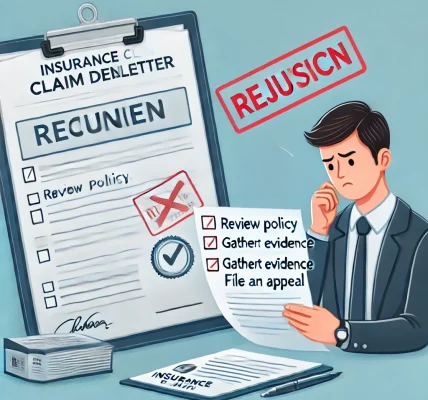Dealing with an insurance claim that falls short of your expectations can be frustrating and stressful. Whether it’s a health, auto, property, or life insurance claim, receiving less than anticipated can disrupt your financial plans. However, understanding your rights and taking the right steps can help you maximize your claim and get a fair settlement.
This blog will guide you through the necessary steps to take when your insurance claim amount is less than expected while ensuring legal safety.
1. Understand Why Your Claim Was Reduced
Before taking any action, it’s crucial to understand why the insurance company offered a lower settlement. Here are some common reasons:
- Policy Limitations: Your policy might have certain caps on coverage that limit the claim amount.
- Deductibles: The deductible amount is subtracted before the insurance company pays out the remaining sum.
- Depreciation: Some policies calculate the claim amount based on the depreciated value of the insured item instead of the replacement cost.
- Partial Coverage: Your claim might not fully qualify under the specific terms of your policy.
- Errors in Documentation: Incomplete or incorrect information in your claim request can lead to reduced payments.
- Disputes Over Damage or Liability: The insurance company may have determined that some damages are not covered.
2. Review Your Insurance Policy
Go through your insurance policy carefully to understand the terms and conditions. Pay attention to:
- Coverage limits
- Exclusions
- Terms for replacement costs vs. actual cash value
- Deductibles and co-pays
- The claim process and appeals procedure
Understanding these details will help you determine whether the insurance company’s payout is justified.
3. Request a Detailed Explanation
If the claim amount is lower than expected, request a written explanation from your insurer. This is often referred to as an Explanation of Benefits (EOB) in health insurance claims.
The insurer must provide reasons for claim reduction, which can help you identify any discrepancies or unfair reductions.
4. Compare Your Claim with Similar Cases
Research similar claims and settlements for the type of insurance you have. This can help you determine if the insurer’s offer is reasonable or if you should negotiate for a higher amount.
5. Gather Additional Evidence
If you believe your claim was unfairly reduced, gather supporting documents to strengthen your case. This may include:
- Photos or videos of the damage
- Receipts and invoices
- Medical reports (for health insurance claims)
- Police reports (for auto accidents)
- Contractor estimates (for property damage)
Providing solid proof increases your chances of getting a fair settlement.
6. Negotiate with the Insurance Company
Most insurance companies expect some negotiation. Here’s how you can do it effectively:
- Stay calm and professional.
- Use evidence to justify your claim amount.
- Highlight any discrepancies in their assessment.
- Request a second assessment if necessary.
Many claims are successfully adjusted after a simple negotiation.
7. File an Appeal
If negotiations do not lead to a satisfactory outcome, you have the right to file an appeal. The process typically involves:
- Submitting a formal written appeal
- Providing additional documentation
- Requesting an independent appraisal if applicable
Most insurance policies outline the appeal procedure, so follow the instructions carefully.
8. Consult a Public Adjuster
A public adjuster is an independent professional who can assess your claim and negotiate with the insurer on your behalf. If your claim involves a large amount or complex damages, hiring a public adjuster can be beneficial.
9. File a Complaint with the Insurance Regulatory Authority
If you believe the insurance company is acting unfairly, you can file a complaint with the insurance regulatory authority in your country or state. In India, you can approach the Insurance Regulatory and Development Authority of India (IRDAI), while in the U.S., you can contact your state’s insurance department.
10. Consider Legal Action as a Last Resort
If all else fails and your claim is significantly undervalued, consulting a lawyer might be necessary. However, legal action should be your last resort due to the time and costs involved.
Before proceeding legally, ensure that:
- You have a strong case with sufficient evidence.
- The legal expenses do not outweigh the claim amount.
- You have exhausted all other options, including regulatory complaints.
Final Thoughts
Receiving a lower insurance claim payout than expected can be frustrating, but you are not powerless. By understanding your policy, gathering evidence, and negotiating effectively, you can maximize your claim amount. Always remain professional, document everything, and seek expert advice if necessary.




